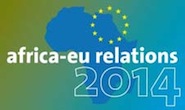In 2003, African Heads of States launched the Comprehensive Africa Agriculture Development Programme (CAADP), as an effort to renew interest in and prioritize the continent’s agriculture agenda, as well as put food security objectives at the fore of national, regional, continental and global processes. Progress on CAADP has been reviewed every year since 2006 at the CAADP Partnership Platform meeting. During the Platform meeting, various stakeholders who contribute to, have vested interest in or are associated with the CAADP process, have an opportunity to coordinate collective and mutual responsibilities for CAADP implementation. This year, the ...
That the private sector is important, if not key, to economic development is nothing new. However, with the increasing rhetoric on the need to “enhance the role of the private sector in development”, events around this topic are mushrooming. BusinessEurope organized a seminar in Brussels on March 15th, with the European Commission, the European Investment Bank, as well as business federation and private sector company representatives present. While we have commented before on the need to distinguish “which” private sector we are talking about, here we were very much discussing how the EU private sector ...
Fragility, as a concept that refers to weak institutional capacity, poor governance, political instability, and frequently conflict, has moved up the international agenda in recent years. As none of the ‘fragile states’ have reached any of the MDGs, these are typically the countries where developmental progress has shown persistent weakness or failure. In an interesting article on his aid on the edge of chaos blog, Ben Ramalingam refers to state fragility as a “wicked problem”, and explores how ideas from complexity theory can help identify new ways of approaching this difficult issue. To me, having worked ...
++ GUEST CONTRIBUTION ++ In response to the Arab Spring, the European Union (EU) promised to shift away from business as usual. It aims to put support for human rights and democracy at the centre of its co-operation policy with the Arab neighbourhood. In this regard, enabling civil society to function, to advocate for citizens’ priorities and rights and to hold governments and donors to account is pivotal. However, regional consultation on EU policies appears to have been either insufficient, without impact or unappealing. Furthermore, double standards in the past have undermined the EU’s credibility ...
Lant Pritchett, a Harvard University Professor, was the keynote speaker at the OECD Development Centre’s 50th anniversary conference in Paris last week. In his presentation he summarised a few simple insights that are helpful for understanding how and where policy reforms might have more impact. One idea he discussed was that of “isomorphic mimicry” - basically, in the natural world when something takes on the appearance of another thing on the outside, but without necessarily having any of the underlying characteristics. According to Prichett, donors and governments engage in this kind of camouflage too often: ...

















